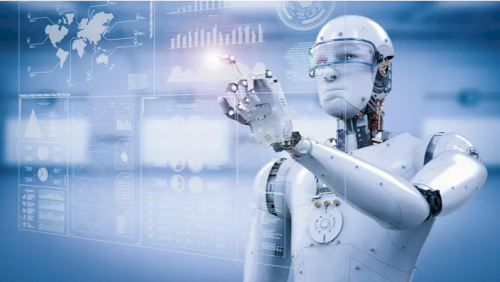Al-Raida #59,
Fall 1992
Weeennn
Paaaaahhh…. Shelling is at its peak
outside. The candle light in the shelter flutters once to the left, another to
the right, afraid of being strangled, trying to escape the invisible hand. I
can see it playing shadows on the iced-staring faces around. It digs its way
transparently through thick walls of darkness. How can such fragility penetrate
such thickness? It tilts its body so graciously as it spells whispers and
temptations. I can hear its murmurs: "Wake up Suha, feel life, feel
warmth."
I was too nervous to answer and neglected its encouragement. I
simply waved a gesture, "Go away," . . . and it curved its way far,
far away from me. SILENCE ...
I listened carefully to the sounds of sighs, of darkness. Everything
was moving along with the slow rhythm of my heart.
- "It's your turn, Suha," uttered one of the neighbors.
It was my turn to shuffle the cards. As I shuffled, reshuffled and
distributed the cards, I could feel its cold breath ticking tick-tick, tick-tick,
tick-tick... My heart responded do-dj, do-dj, do-dj, do-dj… What an enchanting
symphony these two compose!
Every now and then, amidst the shelling outside and the giggles of
the fearers inside, I used to steal a look at the clock on the wall, to watch
its pendulum move steadily left and right, in perfect symmetry and rhythm, with
incredible precision. If only I ...
- Hey Suha, it's your tum; where are you?
- Yes. I'm sorry. I was thinking of something else. ...
And I would continue my game of cards with the aces and the hearts
in the grab of my hand, assured that the clock is still ticking. Bombs are
still falling heavily outside and it still .. Shh, listen to it: tick-tick,
tick-tick, tick-tick... Children crying and playing; parents praying, shouting,
pleading ... tick-tick, tick-tick, tick-tick… What harmony, what persistence.
- "SUHAA," calIing me. I woke up from my trance
- “What is wrong with you?” my neighbor wondered.
- “What? Are we playing cards?”
I asked.
- “What do you mean? We are trying to kilI time.”
- “Kill time? Can we do that?” SILENCE. ..
We're too arrogant in claiming we can kill time.
- “What do you want us to do? Sit and stare at the wall?” my
neighbor commented.
- “But we can never kill time. Time kills us. We can never count
minutes. Minutes count us.”
- “Who cares. They count us, we count them! Just play; will you?”
I kept my silence. My heart was pumping faster. Cold sweat slipped
on my body. Bombardment was extremely intense. I need reassurance; I need
stability; I need the clock on the wall.
Its pendulum was still moving. How heavy is its movement and how
swift at the same time. Funny, how unity is obtained through contrasts: day and
night, black and white, man and woman, positive and negative, or are these
continuations?
Do not name things, Suha. ThIngs are what they are, broader than any
definition.
I imagined the pendulum as Dr. Eckelburg's eyes, from Fitzgerald's
book The Great Gatsby. I felt them watching me; they pierced my flesh
and bones and saw what was beyond. They saw facts I never dared to face, or
even bothered and wanted to know existed.
Dr. Eckelburg's eyes scared me. I looked away; I avoided
eye-contact, but I could still feel his eyes watching me from far, still
steady, heavy and swift. I whispered to myself: get busy Suha. Do not look in
time's eyes. You'll be blinded; you'll be swept away.
At that time, I felt a cold breath breathing down my neck, and a
strange sort of music coming from Dr. Eckelburg's eyes. I looked at them. My eyes stared, my body
shook, my heart, my heart, where is my heart? I can't catch my breath. What happened? Why did the pendulum stop? I need to feel its
stability, its persistence; it gives me courage.
My heart is beating alone now. Where is the ticking? What happened
to my symphony? Will I survive? I am petrified. Somebody, somewhere help me. I
am suffocating. Now the pendulum stands still: no ticking, no moving, no
tranquility, no coldness, no warmth, nothing. I looked at the people around. I
saw lips moving, gestures waving, but I could not hear any words, nor understand
any signs. I felt myself alone, yet surrounded by tens. I focused on those
around, but they were distant, a blurred vision.
- “Where am I?” I asked myself. (No answer)
- “Did I step out of time? Why isn't the pendulum moving? Am I dead
or alive? What is death? Could the pendulum be moving, but I am unable to see
it, in the way that I cannot hear the moving, seemingly soundless lips?”
- Stop asking. Look within.
- Who is this?
...




